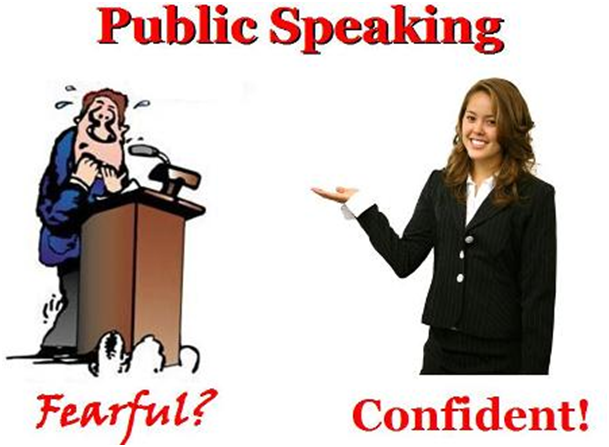The Fun World of Idioms - I
English is a very interesting language, and as you learn it, you will learn about its various marvels every day! The most amazing aspect of English is that you can convey one single message in many ways and make it sound amusing with the usage of idioms!
What are idioms?
It is an expression that does not have a literal meaning, rather it is figurative phrase. There are amusing stories behind each idiom and how it came to be coined. However, amusing story or not, idioms are fun to learn and equally amazing to use, provided you use them in the right context.
For someone new to idioms, it is natural to wonder about the whole fuss around idioms. The reason why idioms are so appreciated is because you can sound satirical, funny, serious, mysterious, and well-read by using them. In addition, using the right idiom at the right time speaks a lot about your command over the English language.
So now that you know what idioms are, you cannot help but be hooked to our series on various idioms, their meaning and their usage. In this first part of the series, let us start with a few idioms that are more commonplace than their peers are.
• Curiosity killed the cat: Chances are you have heard this idiom. And you must have heard when you were in one of your over-inquisitive modes, for that it is when this idiom is used. Curiosity killed the cat translates to 'over inquisitiveness can land you in dangerous/ harmful situations'. While being wary and inquisitive is a good trait, it is best practiced in moderation.
• Act like an ape: What do you call an extremely naughty child, the one who bangs with the furniture because he has been running wild, the one who drops food all over the floor and the one who screams at the top of his voice the moment you try to reprimand him? Naughty is too light a word for such a brat! This is when the idiom 'act like an ape' applies well. The idiom implies to a person who behaves badly and is difficult to control.
• A chip on your shoulder: Are you still worrying about your not so good score in the school-level exams? Are you still nursing a broken heart? Then, in that case, you have a chip on your shoulder, which means that you are still upset over something that happened in the past.
• A slap on the wrist: If you think that your teacher is biased, then there is no surer way of proving it than when the teacher leaves her favorite student with nothing more than a 'slap on the wrist'. This idiom translates to 'giving a mild or an insignificant punishment'. Can you think of other situations where you can use this idiom?
An English speaking course from eAgeTutor will not only improve your spoken English but also train you on the flawless usage of idioms. If you wish to improve English effectively, then it is prudent for you to enroll with one of the online spoken English classes.
How to Carry a Conversation at a Party?
Office parties are a great way to unwind, break the ice, and get to know your colleagues and to let your hair down as well. Office parties offer one more opportunity – to practice your English and social skills.
Office parties are the perfect place to strike a conversation with the colleagues you have always wished to speak with. The environment and mood is just perfect – neither too formal, nor too casual. This is the perfect setting to strike a casual conversation and indulge in some small talk.
However, for people who are complete novices, even a casual conversation at the party is enough to break them into a sweat. The fear of fumbling, making a mistake, mispronouncing, and many other such monsters come to haunt the mind when you are not confident about speaking in English. However, you should remind yourself of one thing always, if you do not practice spoken English, how will you ever improve and gain the confidence? Do not be afraid of making mistakes, rather take them sportingly and learn from them.
To help you out, we will give you a quick lesson to give you an idea of what a standard conversation at a party goes like. We, definitely, cannot predict what the mind of a conversation may crop up at a party, but we can definitely draw a rough sketch to prepare you beforehand so that you do not get caught unawares!
Here is an idea of a usual conversation at a party:
(Before we start, let us make some fictional characters amongst which the conversation will take place. Raj (our amateur English speaker), Suresh, and Priya should be good!)
Raj joins Suresh and Priya
Raj: Hey Suresh, how are you?
Suresh: Hello Raj, meet my friend Priya. Priya, this is Raj, he works in my department.
Priya: Hi, Raj.
Raj: Hi, Priya. So, which department are you in?
Priya: I am in accounts.
Suresh: Hey, let us get some finger food to eat, while we chat up.
Priya: Why, that is a good idea!
Raj: yes, let us go.
As you must have deduced by now, since this is a party, casual words like 'hey', 'chat up', etc. are acceptable. These words give your sentences a fun feel and are apt, given the situation. Now our scene is proceeding towards food. Remember, food is always a safe topic of conversation. Unlike other topics, where people can get judgmental or hurt, food is, by far, a safe topic and it is pertinent that you exploit this opportunity to its maximum.
At the buffet table:
Suresh: Priya, try these paneer fritters. They are amazing.
Priya: Sure.
Raj: I would like to has some, as well.
Suresh: Not has, Raj. You should say 'have'.
Raj: What?
Suresh: You should say, 'I would like to have some, as well.'
Raj: Oh. Thank you for correcting me.
Suresh (to Priya): Raj has been trying to improve his English speaking skills and he practices often. I must say, he has improved a lot.
Priya: Oh! That is terrific, Raj. All the best.
So, this is how you should always welcome help and correction. This is the only way you can improve spoken English. Joining an online English speaking class like eAgeTutor is also a good idea as it will help you understand the rules and nuances of English, thereby improving your spoken English.
How to Overcome the Anxiety of Making Mistakes when Speaking English?
If you are learning English as a second language, there are high chances that you are seeking for an answer to this question. It happens with most of us, when having a conversation we hold a part of it inside as we are not sure whether it is the right way to put it. Remember the last time you spoke with your boss. You couldn't talk all that you had practiced in your mind because you were not sure about your language.
The fear of making mistakes becomes worst when somebody in the past had pinpointed your poor speaking skills. The consciousness is so high that you might shun away from communication, just to avoid embarrassment or humiliation. When you come to this juncture, it becomes practically impossible to improve your spoken English, simply because you are not speaking the language enough. So, what is the way out? How can you deal with anxiety of making mistakes when speaking English?
Altering your mindset is the solution
No matter how good you know English, if you are afraid from within you cannot communicate effectively. The fear and anxiety of making mistakes, makes your language learning skills worst.
"Do one thing every day that scares you."
― Eleanor Roosevelt
This quote lays down the first rule of overcoming your fear. Speak English irrespective of your fear. Nothing bad can happen, you will only soar with greater vocabulary and much better speaking skills. The best way to practice this is to put yourself at ease by having a conversation with a person you are comfortable with. The fear of embarrassment will not arise if you are in the company of a friend who would not judge you by your English speaking skills. Practice speaking English with him/her as much as you can.
Mistakes would happen, but that is alright. Nothing worse can happen if you do not speak up to the mark, once your mind is adjusted to this fact, you can go out and speak in English even with native speakers.
Take for instance, you are shopping in a mall and looking to buy a particular product. In spite of looking at it for long, you don't find it. You are afraid how you will strike a conversation with an attendant and so not asking for help. In such cases, it is best to practice a formal conversation.
"Hello there, May I ask your help in finding soap."
Once, you get what you were looking for, just end the conversation with a courteous "Thank you ma'am."
See, that was so simple. As far as you look comfortable and wear a smile, nobody is going to embarrass you on how you speak English. The fear of making mistakes while speaking English should not act as a communication barrier that stops you from having a conversation. The constant fear would just make it difficult to improve your English speaking skills.
You can join an online English learning course to better your communication skills and overcome your fear of speaking English. Since such a mode works in the virtual domain, you may be at more ease.
Dos and Don'ts of Public Speaking
 One important aspect to study while learning to improve spoken English is to understand the principles of public speaking. Most of us at some point of time in life have to speak in front of a crowd. Whether it is a presentation in your office or a project as part of your course curriculum, public speaking is a requisite. Good communication and a presence of mind help a lot in effectively delivering your message. But for people who have a doubt on their speaking skills, especially their language skills, for them nervousness is at another level. These people don't just have to overcome the stares of people but also their inner fear of English speaking.
One important aspect to study while learning to improve spoken English is to understand the principles of public speaking. Most of us at some point of time in life have to speak in front of a crowd. Whether it is a presentation in your office or a project as part of your course curriculum, public speaking is a requisite. Good communication and a presence of mind help a lot in effectively delivering your message. But for people who have a doubt on their speaking skills, especially their language skills, for them nervousness is at another level. These people don't just have to overcome the stares of people but also their inner fear of English speaking.
It is a fact that some people are natural at public speaking while some face a hard time doing it. However, it is something that we all can mend ways with. Public speaking is not confined to just your language skills, it entails your facial expressions, body language, the ease with which you communicate and a whole lot of other factors.
Let's look at the dos and don'ts that you should keep in mind before facing a group of people.
1. Basic– Dos
Be enthusiastic – Show your enthusiasm and energy.
Face the audience – Manage your presentation such that you face the audience at all times. Don't show them your back.
Speak clearly – Be loud enough that the audience gets your message even the back benchers.
2. Basic – Don'ts
Don't show your nervousness – Don't fidget with things in your hands. Make only purposeful movement and gestures.
Don't play with your slides – Either move on to next slide or stick to one you are explaining, avoid confusion with your audio-visual aid.
Don't do awkward gestures – It's a strict no-no to put your hands in the pocket. Don't have awkward hand or facial gestures that create diversion.
3. English – Dos
Define your words – Do define any word or phrase that you think the audience is not familiar with. It is important to remember that not all sitting in a group belong to the same background as you.
Be Precise and simple – Be as precise and simple when it comes to talking. Don't use complex words like "panache"; instead you can use "style or flair". Keep it as simple, and precise as possible.
4. English – Don'ts
Don't start with affirmative words – This is the first lesson in how to improve communication skills. Always start with a positive word. A lethargic start to a sentence, for instance - So, we all are gathered here to discuss on IELTS preparation, sounds dull.
Don't introduce a topic with a start like 'briefly' – When you start your topic with something like "Briefly"; it implies that the intro is redundant but still forced on the listeners. It is better to avoid such an apologetic start.
Conclusion
When you are learning to speak English, a public speaking experience would add to your learning. Speaking English fluently is one the main concerns that makes us nervous before a presentation. However, if you are well-acquainted with your topic and have structured it well, the language barrier would not be a stumbling block. Organize your presentation, giving yourself enough space to speak slowly and clearly. Don't rush with your talk and gasp for words. Practice and practice more to get your speech right. All the best!




